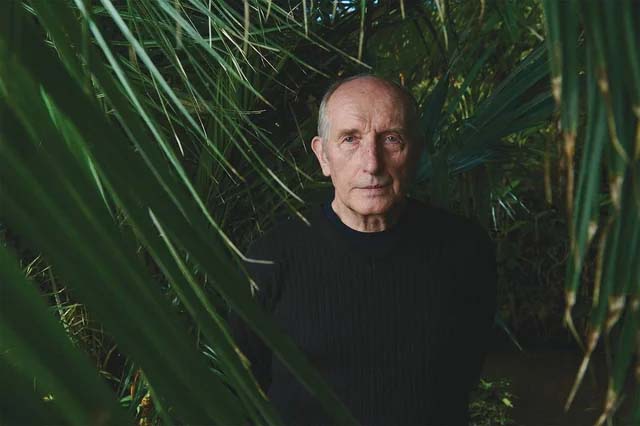- Opinion
- 29 Jun 25
The End is Nigh Sustainability Special: "Practically everything we eat depends on diesel"

Feels like we’re knocking on heaven’s door alright. And such has been the exponential growth in the cost of consumption per person that it may not be long before we get there. Which is why this column is titled The End Is Nigh. The parable of the reindeers tells us all we need to know…
During World War II, US servicemen pitched up on the uninhabited St. Matthew Island in the Bering Sea, off the coast of Alaska. In 1943, the US Coast Guard established a long-range navigation site there. Conditions were at times so treacherous that, in 1944, exactly 29 reindeer were brought to the island as an emergency food supply, if it were needed.
The need never arose. The war ended and the soldiers left the reindeer behind, in a Garden of Lichen: a kind of reindeer paradise, with no predators to assail them. In just over a decade, the reindeer population grew to 1,000. They were fat and healthy. Life must have looked good to them.
The population growth was exponential. As a second decade approached, their numbers reached 6,000. It was, the reindeer would discover, many times higher than was sustainable on a small island. They had overshot.
The lichen became overgrazed and what was left of it was badly trampled. The reindeers were thinner now, sicker-looking, and the ratio of young to old was in decline. Stress was showing. Then came a particularly hard winter. The reindeer population collapsed by 99%. When they were counted, just 42 remained.
Battered, weary, diseased, the walking wounded: they would hold on for a while longer before stumbling into extinction.
THE ENERGY OF A LIGHT BULB
If we date it back only as far as the emergence of the genus ‘homo’, it took humans between two and three million years to reach a global population of approximately one billion people, which we did around 1800. It took only 130 years to double that number, with the world population hitting two billion by 1930.
Growth continued to accelerate.
We, finally, added another billion in just twelve years between 2011 and 2023, bringing the total population of the world to in excess of eight billion.
Fossil fuels supercharged our Garden of Lichen. Practically everything we eat depends on diesel. Scientist Vaclav Smil, in his book How The World Really Works, estimated that the total amount of diesel fuel required to support the production of one kilogram of bread, is about 210 grams. It is an astonishing thought.
 Vaclav Smil.
Vaclav Smil.Of course, population growth is only a part of the story. There are indications that the global population will soon begin to decline. Indeed, this has already started to happen in some countries.
The big story here, however, is the massive overconsumption by the middle and upper classes – and the vast amount of energy that is required to sustain those still accellerating levels of appetite.
10% of the world’s richest do more damage to our environment than 50% of the poorest. They eat more, drink more, drive more, fly more, use and discard more electric goods, and of course they hog the hospital beds, the drugs, the big houses and all the tech appliances you can name.
In terms of energy expenditure, life is extremely expensive now. If we relate it to our metabolic rate, we can see just how expensive it is.
If you’re “sitting around doing nothing”, as physicist and metabolic rate expert, Geoffrey West, said to Nate Hagens on The Great Simplification podcast, our metabolic rate is about 100 watts. That requires about 2,000 food calories per day to maintain.
“It’s only 100 watts,” West stressed, his voice rising in excitement. “You only operate at the energy of a light bulb, which is truly extraordinary.” When out hunting and gathering, the metabolic rate goes up to between 200 and 300 watts.
Hold those numbers in your mind. And listen…
 Geoffrrey west
Geoffrrey westPUTTING THE BOOT DOWN
The way Geoffrey West measures it, where modern, civilised humans, living and consuming in the USA or Western Europe are concerned – taking cars, clothes, flights, phones, TVs, houses, AI and all the rest into account – the total energy cost is about 11,000 watts per person.
That, my friends, is 110 times what our more active early ancestors needed. We have become huge – and all-consuming. Weighed down and grossed-out by our brands – Apple, Samsung, Google, Facebook, Toyota, Amazon – we have become incredible hulks.
It is as if we are 175 metres (570 feet) tall and weigh 7,500 kilos (16,500 pounds). Our mouths are as big as the front doors of a shopping center. Each step we take, we put down almost eight ton of pressure on the emaciated soil.
All that stuff we’ve consumed has bloated us beyond recognition. We are giants of consumption. We are devourers of the earth and all that is contained within it. “It’s hard to see how it can sustain itself,” West said. “I think we’re due for some major collapse at some stage.”
Energy and material use has grown far faster than the population. And it is rocketing ahead because the convenience and vanity wants of the middle and upper classes have become limitless.
This much is inescapable: you cannot satisfy infinite wants on a finite planet. And here’s the attendant, stark reality, as I see it: our voracious consumption of the earth’s resources is currently way beyond what our environment can cope with. We have massively overshot. And our solution, it seems, is to employ AI and other Big Tech fantasies to help us overshoot even further and faster.
The truth is that we must massively slow down, degrow – and instead we’re accelerating, putting the boot down as hard as we can and launching massive wars that are like peacetime on steroids. It won’t end well.
Meanwhile, our so-called leaders say that there’s nothing they can do, because this is what the people want.
Is this what you want? Remember the reindeers – and then answer...
RELATED
RELATED

- Opinion
- 28 Apr 25
The End is Nigh: Playing Russian Roulette with the Tech Bros

- Opinion
- 10 Aug 23








